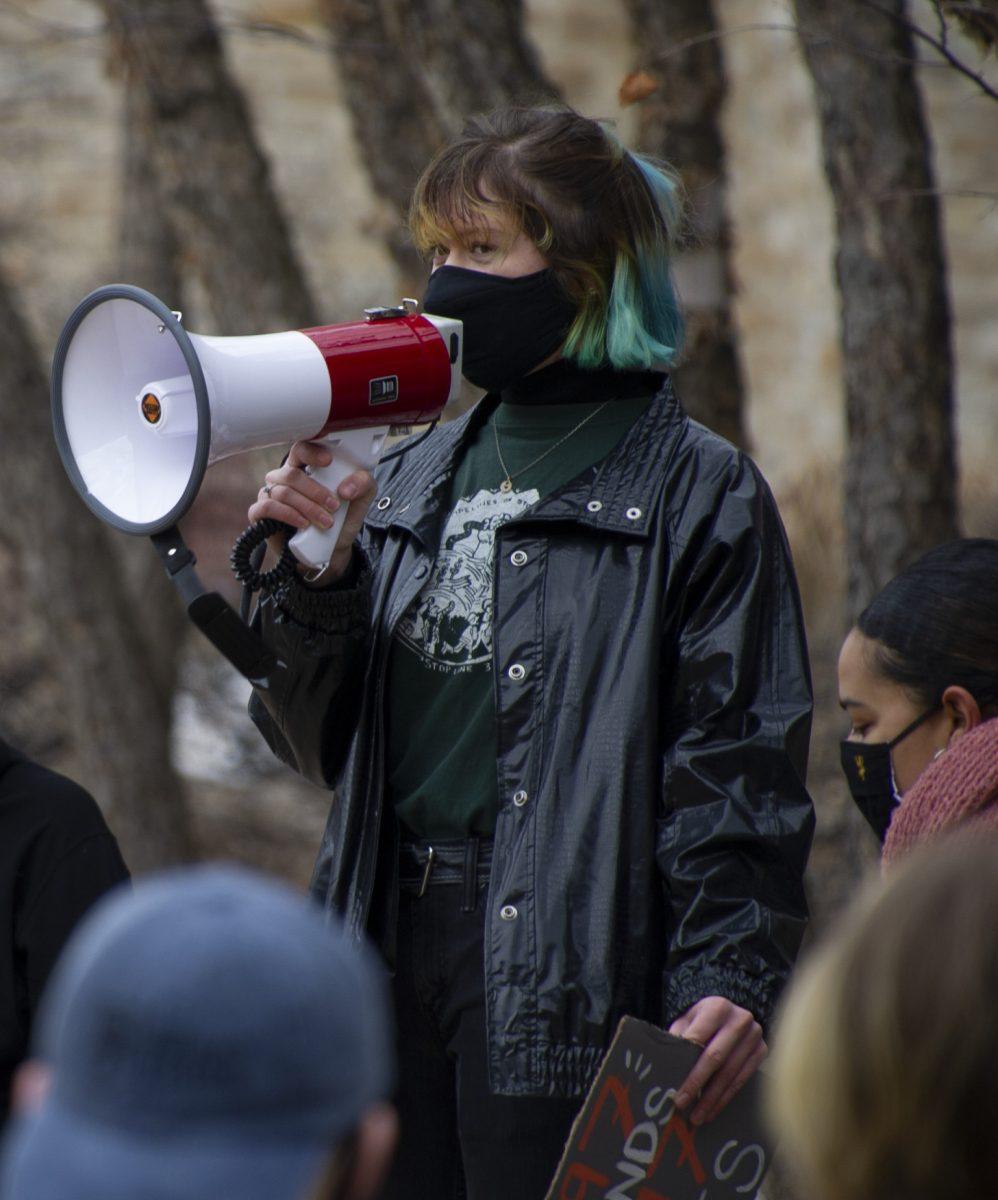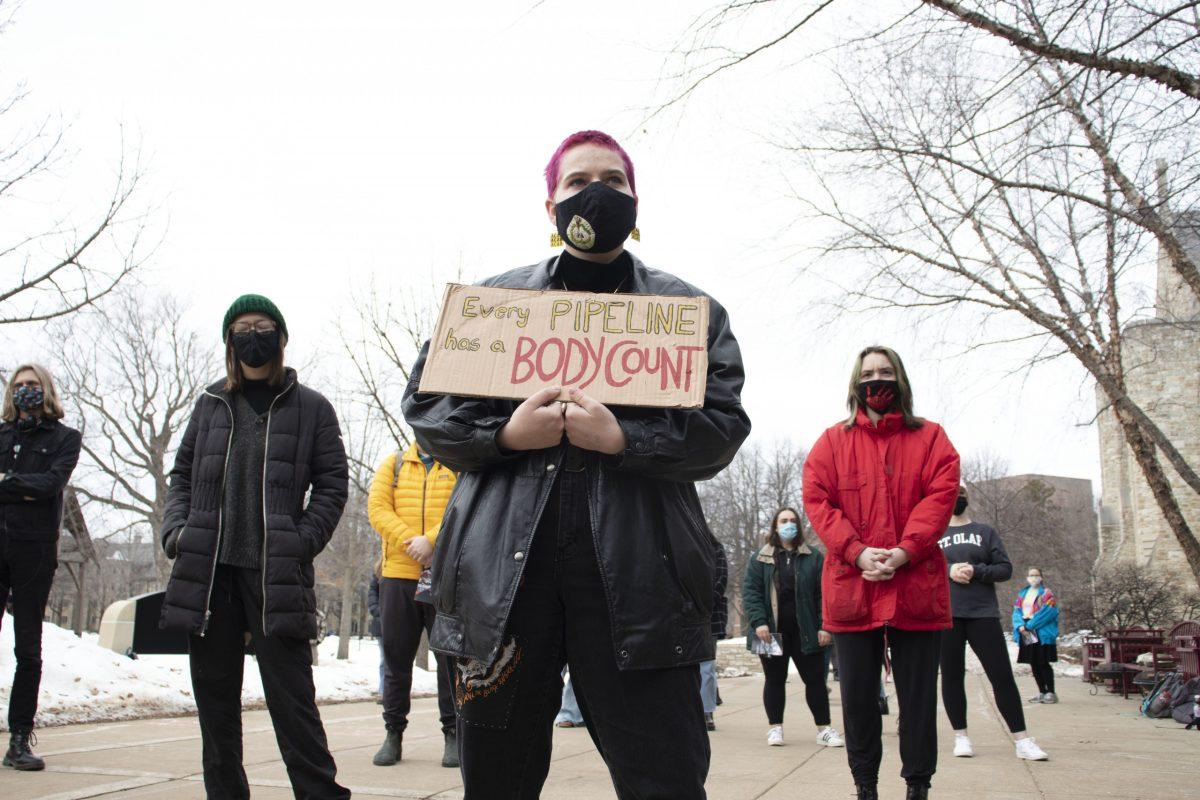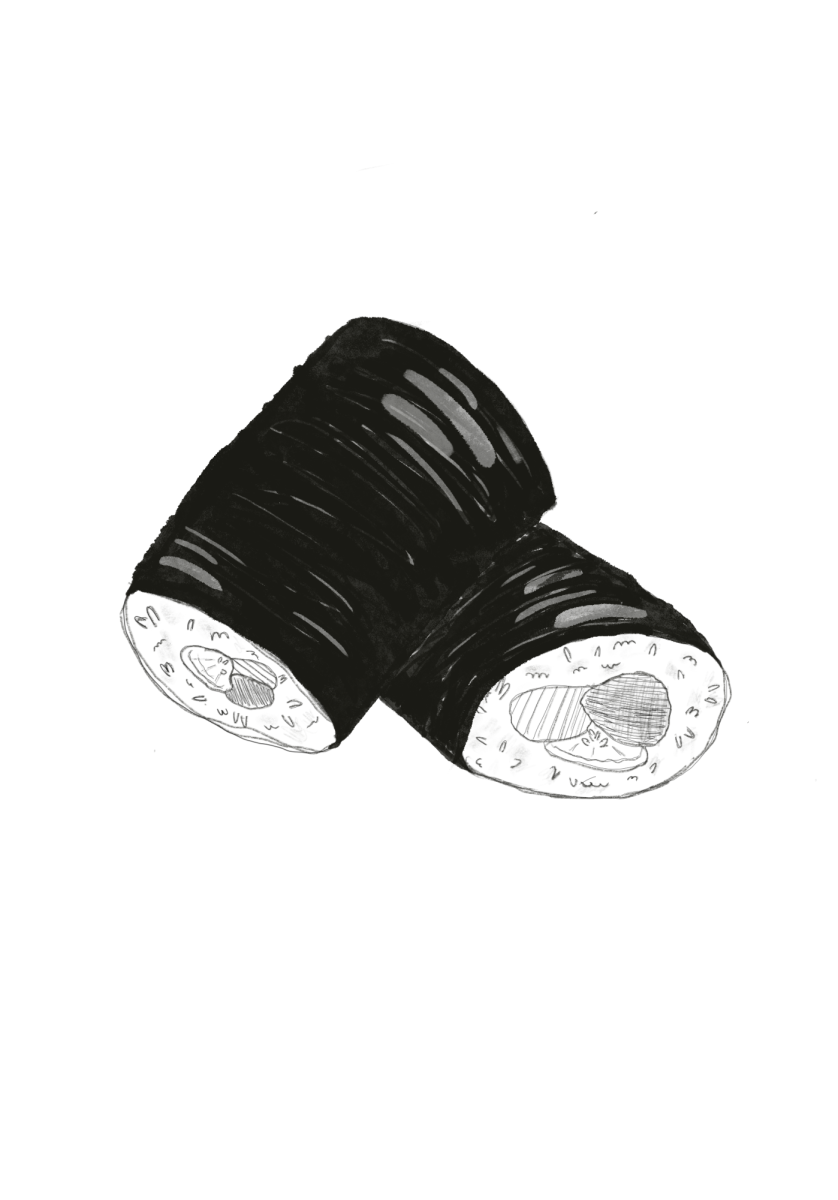Around 200 St. Olaf students gathered on Buntrock Plaza at 10 a.m. on Friday, March 5 to participate in a “Die-In” organized by St. Olaf’s Climate Justice Collective (CJC). The Die-In protested the construction of the Enbridge Line 3 pipeline as well as St. Olaf’s investment in the fossil fuel industry.
Abby Becker ’21, a leader of CJC, helped introduce the event, encouraging students to question where their money goes. “When you don’t know where your money goes, it goes to violent places,” Becker said.
Students laid on the pavement for 1097 seconds — 18 minutes and 17 seconds — with each second representing one mile of the proposed pipeline that, if completed, will stretch from northern Alberta, Canada to Superior, Wis.
The event was part of St. Olaf’s participation in a larger day of action across Minnesota and parts of Canada to protest construction of the Line 3 pipeline as well as the broader tar sands industry. Eight Minnesotan universities participated in the day of action, with five being part of Minnesota Intercollegiate Athletic Conference (MIAC). Each university focused on specific issues surrounding divestment and the Stop Line 3 movement.
At St. Olaf CJC members displayed banners reading “Every Pipeline Has a Body Count” and “1097 Seconds, 1097 Miles #DefundLine3” over Buntrock Plaza.
CJC member Andrea Burton ’21 expanded upon the banners explaining to the crowd the importance of a Die-In.
“We are going to ‘die’ here together to show that we don’t stand with that body count,” Burton said.
Another banner reading “Defund Climate Genocide” appeared over the recently constructed sign about the Ole Avenue Project located between Holland Hall and Rolvaag Memorial Library.
CJC members Becker, Burton and Isaac Nelson ’21 spoke to students prior to the Die-In about the goals of the day of action and the CJC’s movements to encourage the College’s divestment from the fossil fuel industry.
Sunrise Carleton and Divest Carleton, two student organizations at Carleton College active in demonstrations against Line 3 and Carleton’s investment in the fossil fuel industry, joined the day of action. Students protested the pipeline and encouraged divestment by occupying trees outside the home of Carleton President Steven Poskanzer. At Macalester College students blockaded a city street in protest of their school’s direct investment in Enbridge. Gustavus Adolphus College held a rally while students at the College of St. Benedict hosted a teach-in.
Instagram stories shared by @climatejusticecollective, @sunrisecarleton and @carletondivest proclaimed the solidarity between the two organizations. As well as an Instagram account and @carletondivest.
Northfield Against Line 3 and Resist Line 3, two anti-pipeline organizations working in the broader Northfield community, also shared their solidarity with the CJC’s efforts via their own Instagram accounts, @nfld.against.line.three and @resist_line_3, respectively.
A statewide virtual rally organized by student water protectors was held March 5 at 3 p.m. as part of the day of action with over 300 people in attendance. CJC member Imani Mosher ’21 addressed the attendees, explaining the danger that pipeline construction poses against Indigenous women, and warned the audience of companies like Enbridge.
“The extractive economy doesn’t value humanity and it doesn’t value the land,” said Mosher. “Fossil fuel infrastructure like Line 3 destroys the land for profit.”
A group consisting of community members, St. Olaf and Carleton students as well as students from Northfield High School took to Wells Fargo over the weekend. A bank that has ties to the Line 3 pipeline, Wells Fargo plays a critical role in the development and construction of pipeline projects.
Occupying space both outside and inside the bank, protesters read letters urging Wells Fargo to stop its business with the fossil fuel industry. After the police arrived, protests continued outside. Protesters occupied space by dancing and chanting for the rest of the hour.
Reporting contributed by
Jake Maranda
Executive Editor






